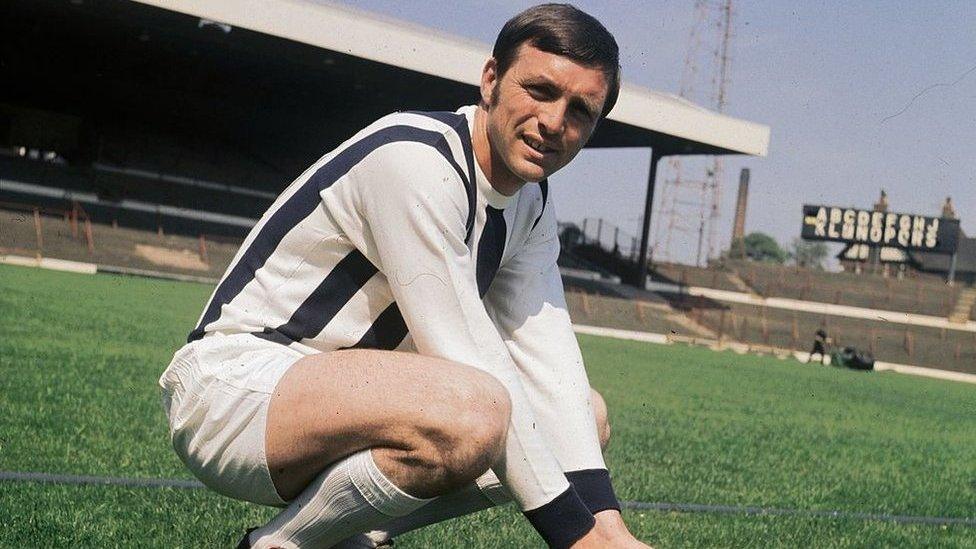Ex-players' families demand study into football and dementia
- Published
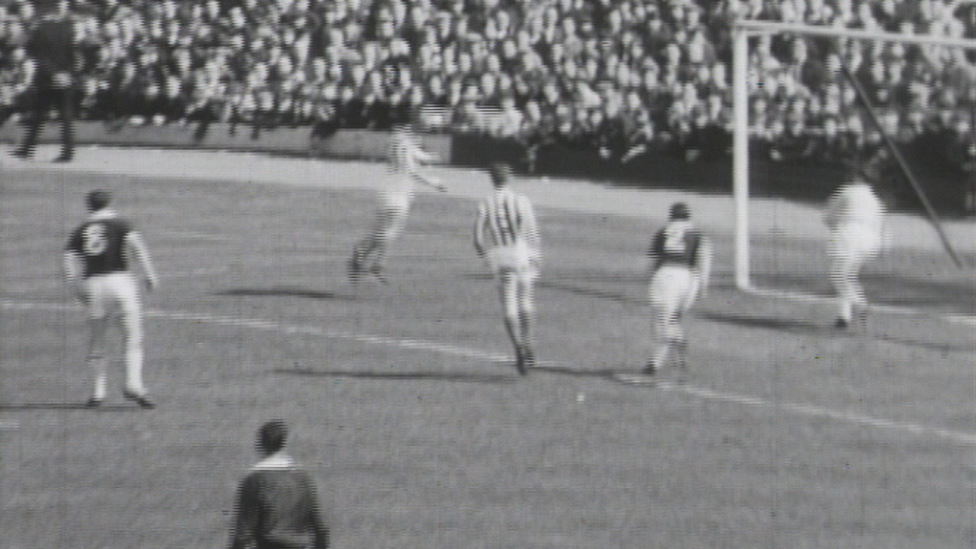
Davie Sneddon heads the winner against Hearts in 1965
The news that former Celtic captain Billy McNeill is suffering from dementia has sparked more debate about whether footballers damage their brains when they repeatedly head the ball.
The McNeill family say they don't know if the player's condition is definitely linked to the sport - but they want to see more research done.
Now, the relatives of two footballers who played for Kilmarnock FC in the 1960s have called on the football authorities to pay more attention to the issue.

The story of Kilmarnock FC's 1964-1965 squad has gone down in club legend.
It was the year the team won the Scottish League Championship on the last day of the season, with a 2-0 victory over Hearts.
The winning goal in the final match - a header - was scored by Davie Sneddon.
The player's son, David Sneddon, said he knew of five members of that team who went on to develop Parkinson's Disease, dementia - or both.
That includes his 80-year-old father who was diagnosed with vascular dementia about five years ago.
Training headers
"We can see every day that his memory is getting really, really bad," he said.
"Dad didn't head the ball much during the game, but during training they headed the ball a lot."
Sneddon went onto manage Kilmarnock, but winning the league would have been difficult to beat as a career highlight.
"They were a great team in 1965", his son told the BBC.
"They had Frank [Beattie] who was the centre half. He obviously died from Parkinson's and dementia.
"And you have Jackie McInally who died last year. He was unwell as well with that same sort of illness.
"Jim Mcfadzean was part of the squad and he had Parkinson's as well. Joe Mason who was another squad member - he's currently in a home at the moment and he doesn't keep very well."
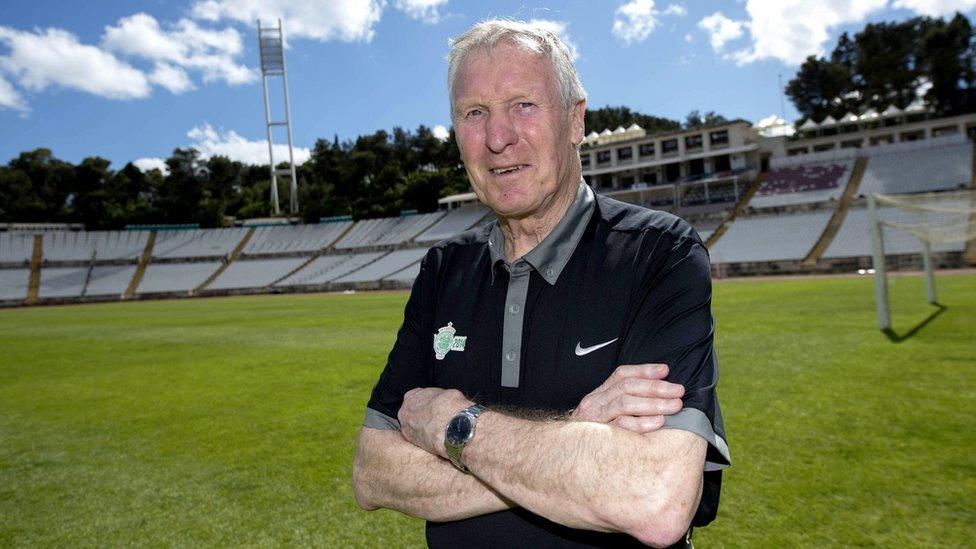
Billy McNeill was diagnosed with dementia seven years ago, his family said
Beattie was the captain of Kilmarnock in 1965 and spent his entire playing career at the club.
He was diagnosed with Parkinson's when he was 65 years old, and with dementia a few years later.
According to the Alzheimer's Society, one in six people over the age of 80, external has dementia - but far fewer develop it in their 60s or 70s.
Beattie died in 2009 aged 76 and his widow Betty says she is convinced his condition was linked to football.
"When he was diagnosed with Parkinson's, the doctor said right from the beginning the Parkinson's was due to heading the ball," she told BBC Scotland.
"He used to say he could believe it was with heading the ball."
Brain function
Mrs Beattie said that her husband had wanted to remain independent even as his condition worsened, but would often get lost on walks.
"He was quite independent wanting to go out on his own so you got that you put his name in his pocket just in case," she added.
There is a growing body of anecdotal evidence of the link between heading footballs and dementia - but precious little science.
Last year, a study by the University of Stirling showed that repeatedly heading a football could significantly affect a player's brain function and memory for 24 hours.
And Alzheimer Scotland has just announced that it intends to hold a "football and dementia summit" with key researchers and representatives from Scottish football.
The Scottish FA has pointed to its work producing the world's first consensus guidelines on concussion management.
The body also said it would work with partners at the UK and world level to examine current scientific evidence on whether heading the ball caused brain injuries.
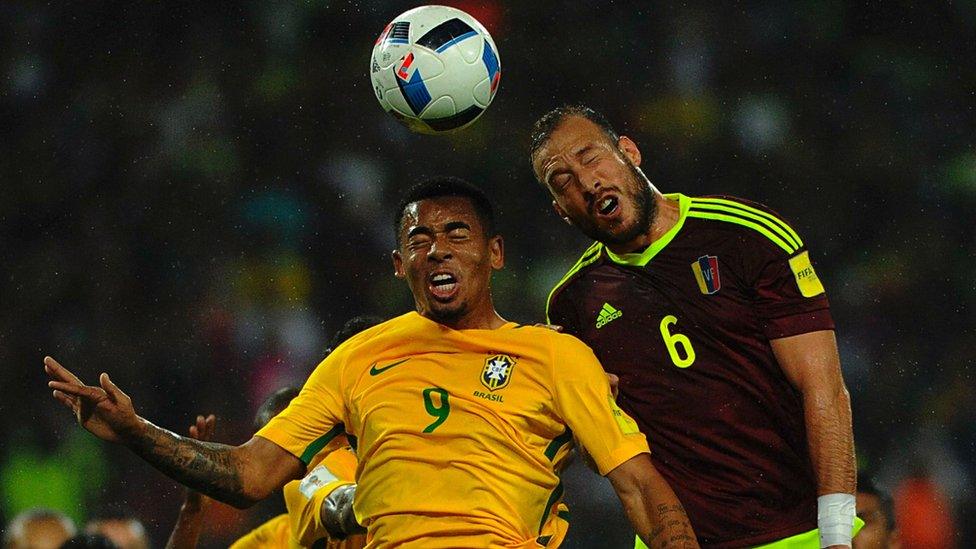
Scientists say there is no scientific evidence yet to link heading footballs with dementia
Neuropathologist Dr Willie Stewart, who co-authored the Stirling study, said: "The science is way behind current public concern and the anecdotes we're seeing coming through from tragic case examples.
"The reality is we have very little science to link the act of heading to any long term problems.
"What we know is that in a small number of former footballers, when we've looked at their brains, we find a pathology in their brains that we've seen in people who have been exposed to brain injury in the past."
That includes boxers, rugby players and American footballers, he said.
Dr Stewart, from the University of Glasgow, told the BBC a "concerted effort" from sport and the research community was now needed - starting with a study about the incidence of dementia among former footballers.
"That's something in Scotland we could do reasonably easily if we could just identify the population of former footballers and look at that against the data we have," he said.
"If we do that and find that the incidence of dementia is no different then I think we can relax a bit and begin to take a step back and think more rationally about it.
"If however, as the anecdotes and the fears would suggest, the incidence of dementia is higher then I think we need to pursue quite aggressively what the link is there. What's causing that increased risk?"
Amateur players
Mr Sneddon and Mrs Beattie can name former footballers at other clubs who they know developed dementia at a younger age than normally expected.
And both agree that the footballing authorities need to be doing more.
"They're ignoring it to be quite honest. I don't think they realise just how many footballers are suffering at the moment," Mr Sneddon said.
"Not just professional players. There's a lot of amateur players who'll be suffering as well and you won't hear about them."
- Published27 February 2017

- Published26 February 2017
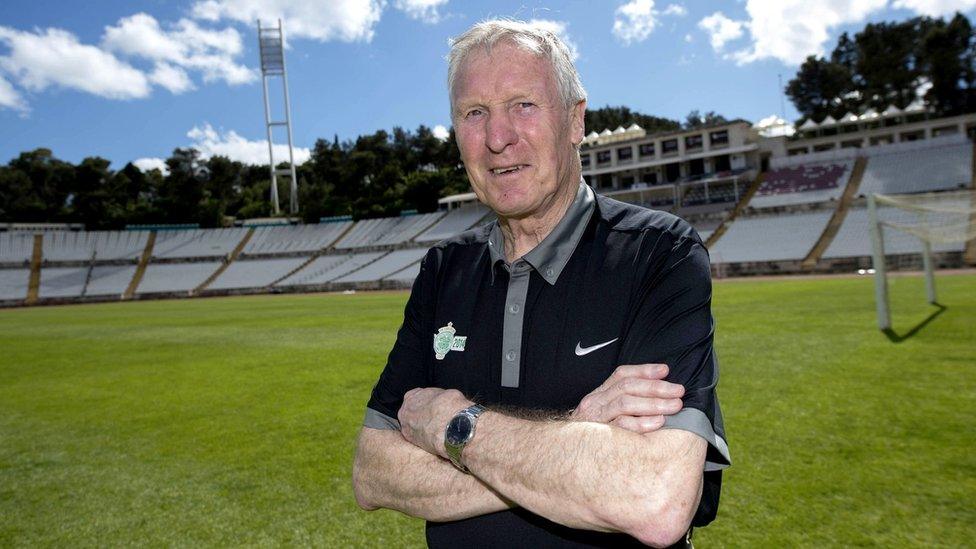
- Published24 October 2016
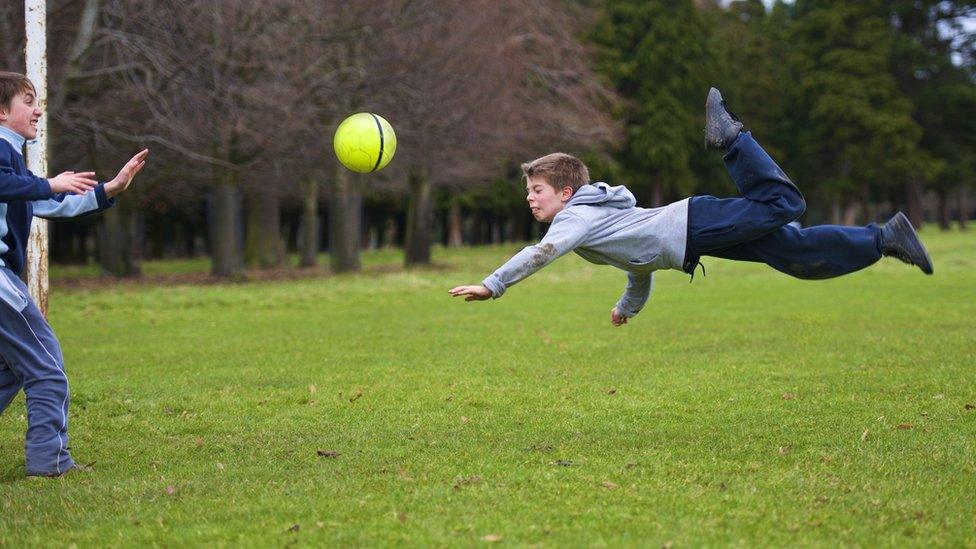
- Published12 April 2016
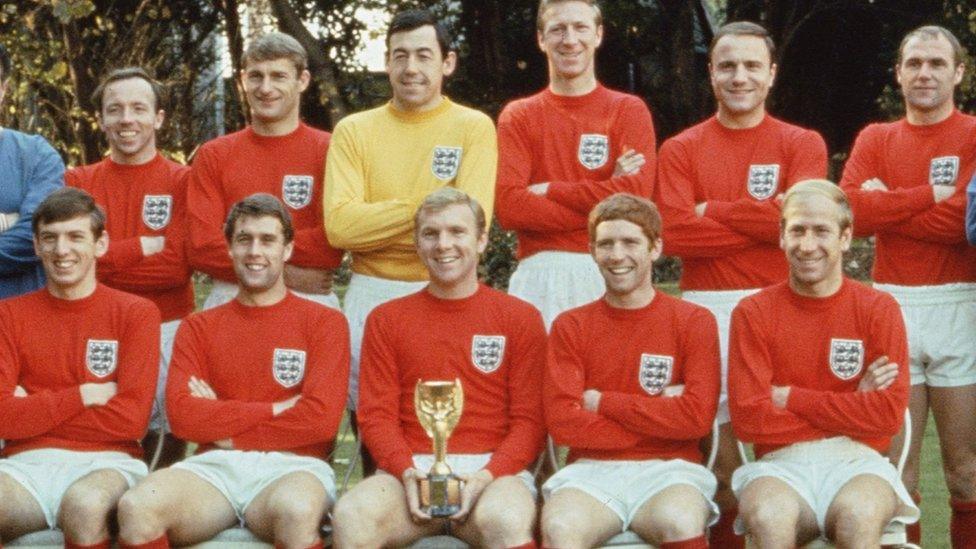
- Published31 May 2016
